
Climate Solutions Symposium 2023
Solutions for a Just & Thriving Planet
The climate crisis is here. It is impacting big cities and small communities in unprecedented and disproportionate ways. The crisis will continue unless we develop transdisciplinary solutions for climate change mitigation, adaptation, and resilience now.
With Penn State’s excellence in climate change research as the backdrop, the two-day Penn State Climate Solutions Symposium will highlight innovations from numerous disciplines through dynamic breakout sessions, keynote talks from leaders in the climate solutions space, and a poster session. The event will also feature opportunities for attendees to network with like-minded individuals who are seeking climate solutions as collaborators, funders, or implementers in the themes below.
May 22–23, 2023
The Penn Stater Hotel and Conference Center
State College, Pennsylvania
The Climate Solutions Symposium will feature more than 60 experts from academia, industry, government, and community organizations. Join us as we network, learn, and workshop innovative and promising ideas and projects.
Themes & Breakout Sessions

Arts & Communication
Arts and communication are important tools for raising awareness and driving action on climate change, and providing opportunities for individuals and communities to engage with the issue.

Built Environment
The built environment plays a critical role in mitigating and adapting to climate change by reducing emissions, improving health, and building resilience.
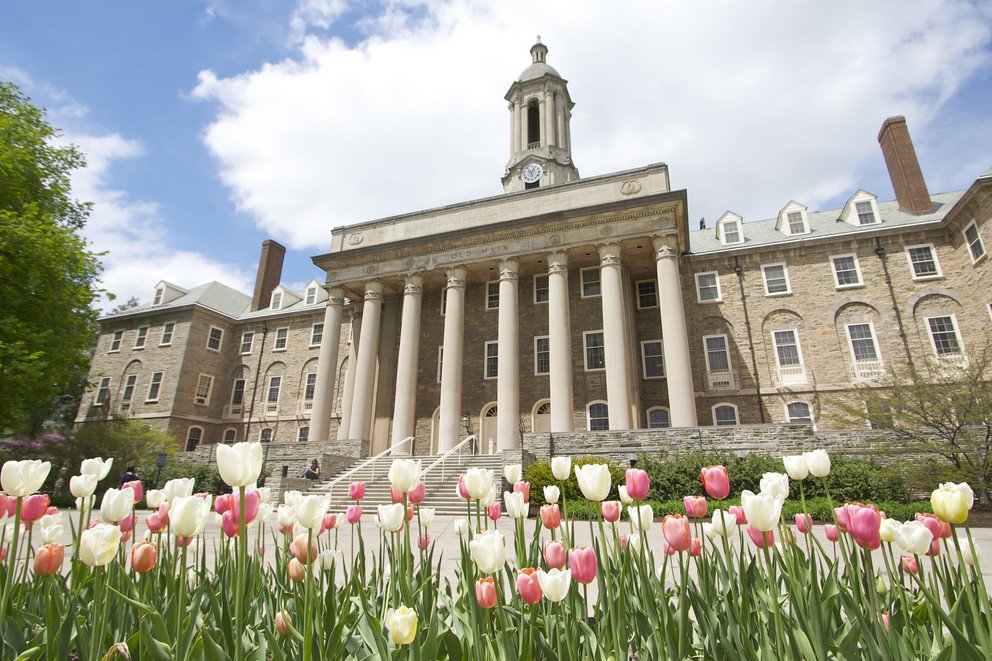
Carbon Emissions Reduction Task Force
The Penn State Carbon Emissions Reduction Task Force has made recommendations for the University to achieve 100% emissions reduction by 2035.
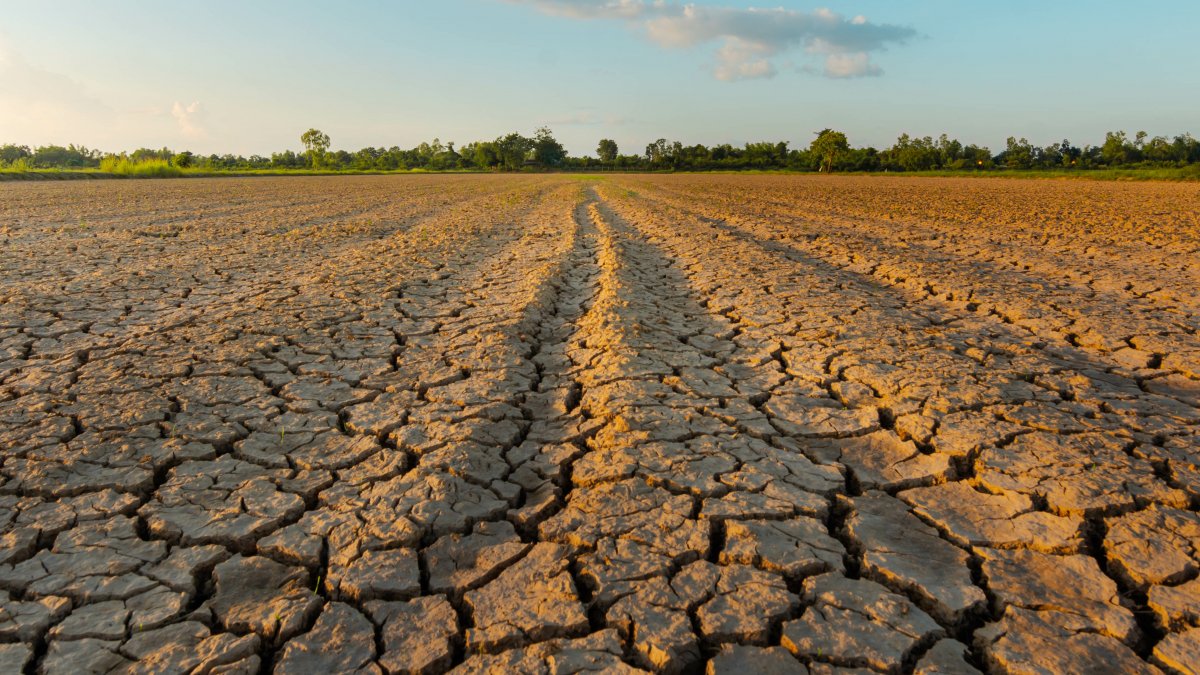
Change & Risk
Understanding and mitigating climate risk is essential to ensure the resilience of communities, economies, and ecosystems worldwide.

Climate Security
Climate security involves managing the risks of security threats exacerbated by climate change, such as resource scarcity, migration, and conflict, as well as new threats like sea-level rise and extreme weather events.
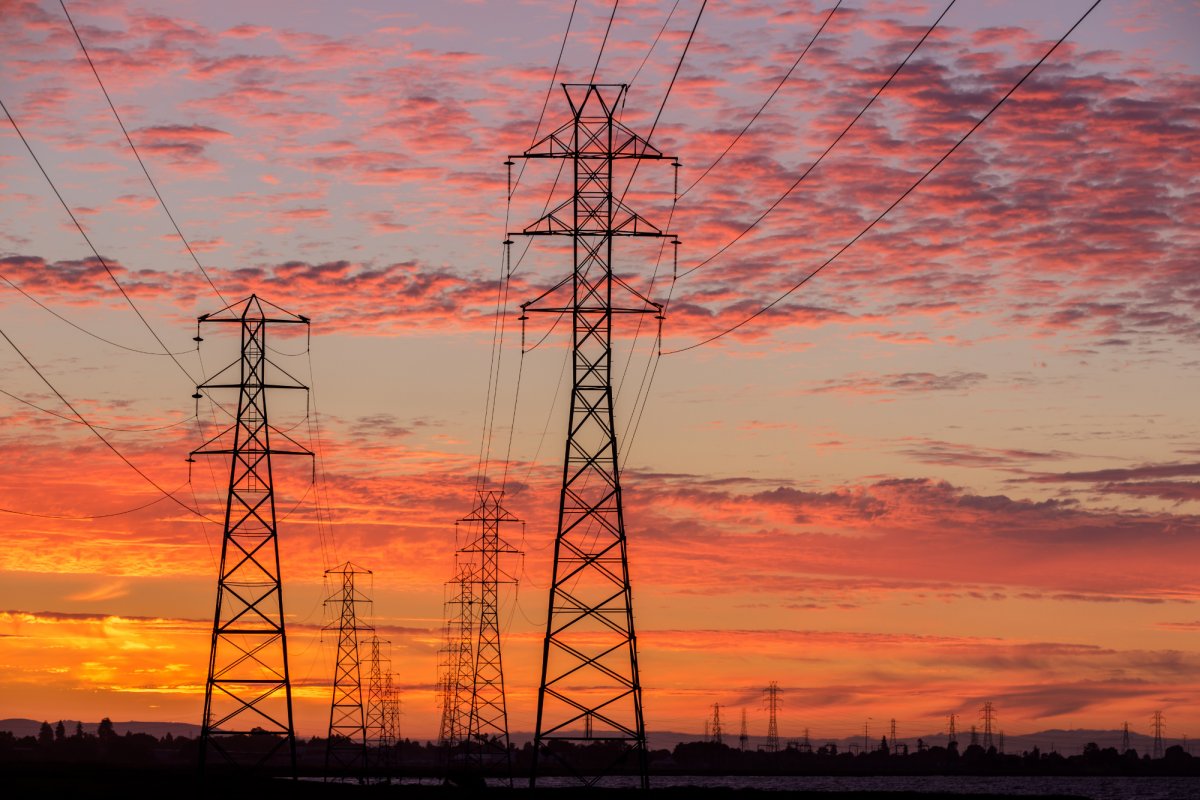
Energy
Climate solutions in energy address the generation, transmission, and patterns of energy consumption.

Finance & Business
The business and financial sectors have a crucial role to play in addressing climate change, with a range of solutions.
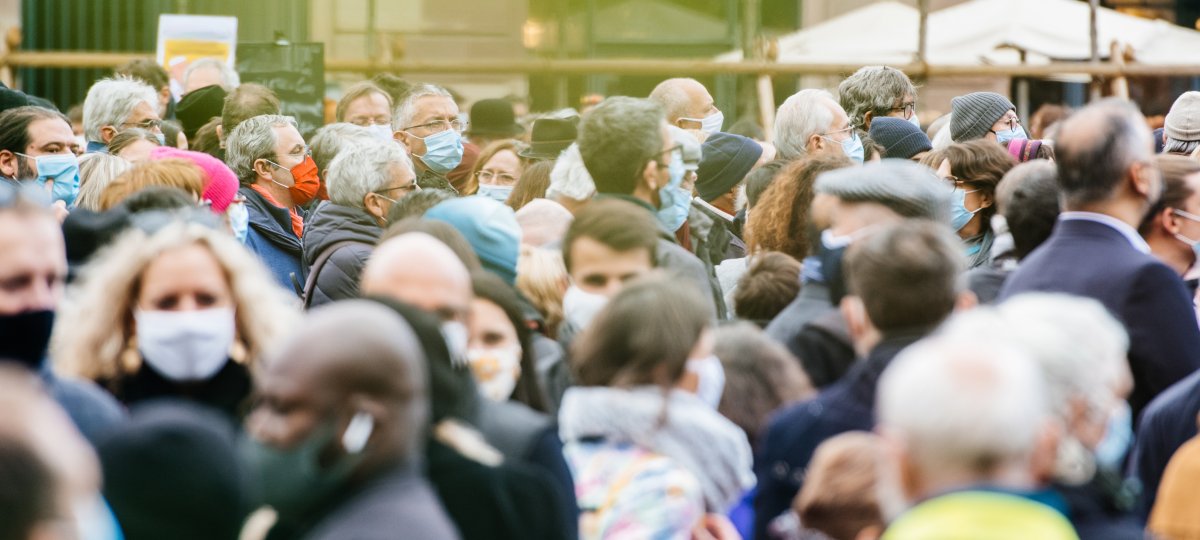
Health
Climate solutions in health involve mitigating the causes of climate change and adaptations to reduce the risk to human health.
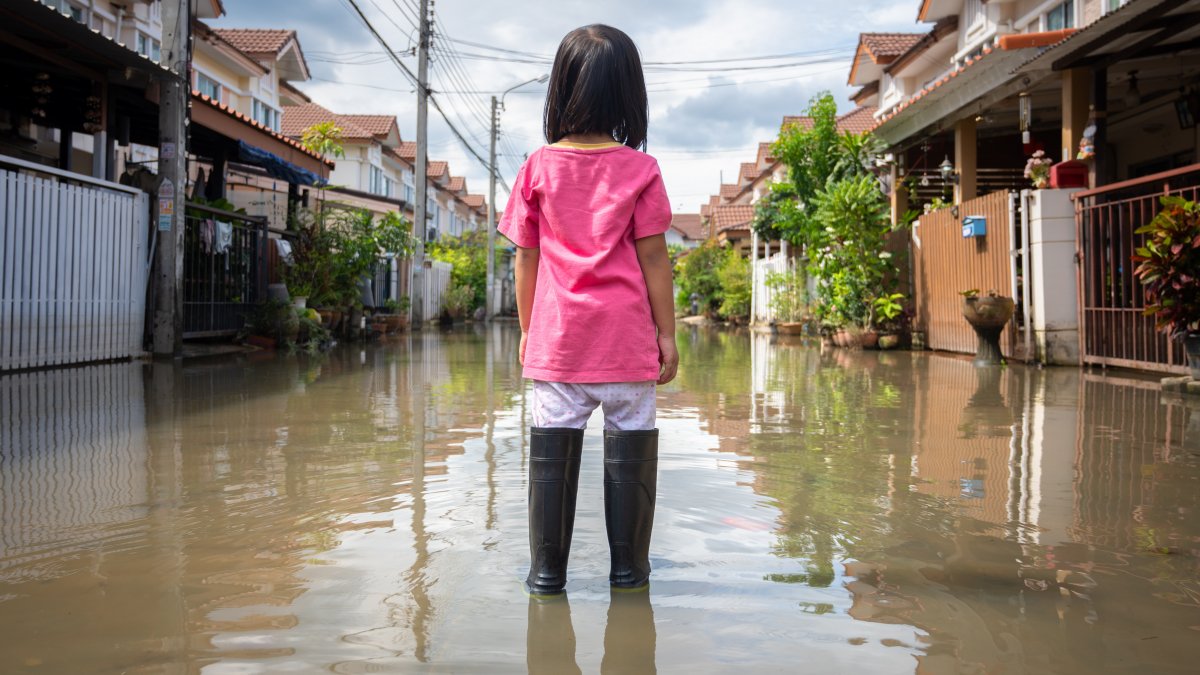
Justice & Ethics
Climate justice solutions involve addressing the disproportionate impacts of climate change and empowering communities.

Large Climate Projects at Penn State
Climate research at Penn State encompasses a wide range of disciplines and approaches, with the goal of informing effective strategies for mitigating and adapting to climate change.

Nature-based Strategies
Nature-based solutions include restoring and protecting forests, wetlands, and other ecosystems, as well as promoting sustainable agriculture and conservation.
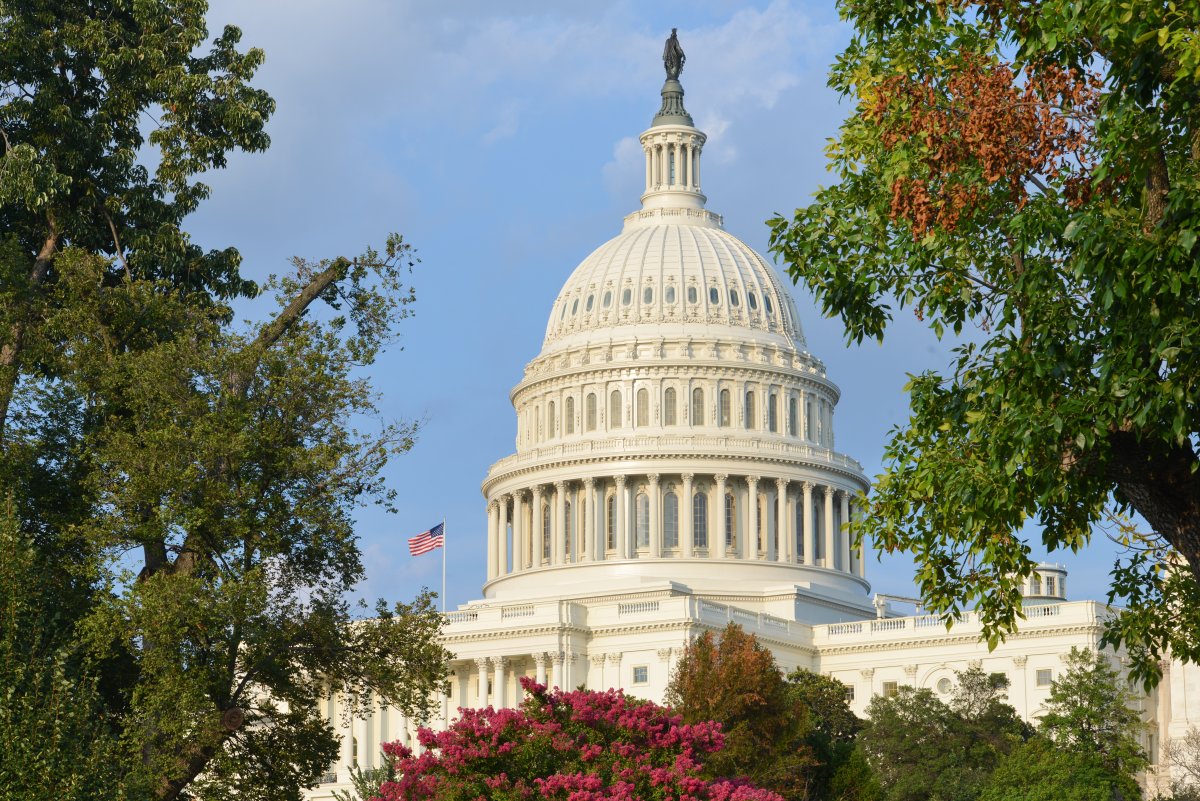
Policy
Effective policies at the local, national, and international levels are necessary to drive meaningful action on climate change and create a more sustainable future.

Sustainable Aviation & Responsible Travel
Aviation and travel present an opportunity for climate solutions, given the significant contribution of the transportation sector to global greenhouse gas emissions.
Agenda and Recorded Sessions
Monday, May 22, 2023
| Time | Event | Location |
|---|---|---|
| 7:30 | Registration opens | |
| 9:00 | Introduction Erica Smithwick and Bruce Logan |
Presidents Hall |
| 9:15 |
Keynote: Mustafa Santiago Ali |
Presidents Hall |
| 10:30 | Break | |
| 11:00 |
Breakout option: Large Climate Projects at Penn State |
206 |
| Breakout option: Energy "Just and Sustainable Transitions to a Low Carbon Economy" |
207 | |
| Breakout option: Health "Improving Health Outcomes in a Changing Climate" |
208 | |
| 12:30 |
Lunch Panel: Climate Security |
Presidents Hall |
| 2:00 | Break | |
| 2:30 |
Breakout option: Change & Risk |
207 |
| Breakout option: Justice & Ethics "Negotiating and Enacting Ethical Goals" |
208 | |
| 4:00 | Arts & Communication: Art Exhibition | 205 |
Tuesday, May 23, 2023
| Time | Event | Location |
|---|---|---|
| 7:30 | Registration opens | |
| 9:00 |
Introduction: Neeli Bendapudi Panel: Penn State Carbon Emissions Reduction Task Force |
Presidents Hall |
| 10:15 | Break & Poster Session | Presidents Hall |
| 11:00 |
Breakout option: Built Environment |
207 |
| Breakout option: Finance & Business "Perspectives of Business and Finance to Address Climate Change Solutions" |
208 | |
| 12:30 |
Lunch Remarks: Justin Schwartz Panel: Sustainable Aviation & Responsible Travel |
Presidents Hall |
| 2:00 | Break & Poster Session | Presidents Hall |
| 2:30 |
Breakout option: Nature-based Strategies |
207 |
| Breakout option: Policy "How Grant Organizations Approach Climate Research and Climate Solutions" |
208 | |
| 4:00 |
Wine & Cheese Reception Please join us for a networking event with climate-friendly, locally sourced food and beverages. |
Deans Hall |
Speakers and Session Leads
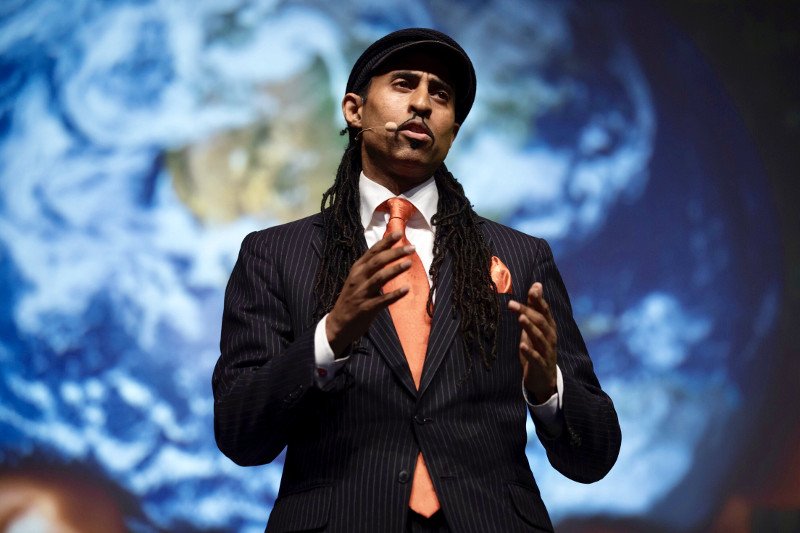
Mustafa Santiago Ali
Keynote Speaker
Recorded Sessions
Welcome and Mustafa Santiago Ali
Keynote: Courageous Actions and Conscientious Conversations to Win on Climate Justice
Introduction with Neeli Bendapudi and Panel: Penn State Carbon Emissions Reduction Task Force
Climate Security
"Back from the Edge: Opportunities for Sustainability to Impact Environmental Security"
Remarks from Justin Schwartz and Panel: Sustainable Aviation and Responsible Travel
Poster Session
In alphabetical order by last name (Name; Poster Title)
- Nitisha Ahuja; Route-Based Energy Analysis of Hybrid Rail Consists
- Micaela Amateau Amato; Consumer / Corporate Collusion
- Ashmita Bhattacharya; Optimal Design and Life-Long Adaptation of Civil Infrastructure Under Climate Change and Uncertain Demands
- Jonathan Boualavong; Rate Considerations in Electrochemical Carbon Capture
- Enock Bunyon; Using Sensitivity Analysis To Identify Drivers of Environmental Impact in Coupled Human-Natural Systems
- Carla Campos Morales; Designing Retirement Strategies For Coal – Fired Power Plants To Address Air Quality, Health and Equity Considerations
- Digant Chavda; Leveraging Nature-Based Solutions To Mitigate and Adapt To Climate Change: Application To Reducing Flood Induced Risk To Bridges in Swatara Creek
- Shirley Clark; Impacts of Storm Intensities and Rainfall Time Increments on Flooding in an Era of Increased Intense Convective Storms
- Samuel Cohen; Reservoir Nutrient Trajectories
- Henry Eya; Density Functional Theory Investigation of the Bulk and Surface Properties of BaZrS3 for Photovoltaic Applications
- Marvellous Faluyi; Evaluation of Hydrothermal Hydrogen Production Efficiency of Various Low-Grade Biomass from Forest Trees in Pennsylvania
- Maria Fleury; Revealing the fingerprints of climate change on daily temperatures around the world – using the Climate Shift Index
- Nikolay Golosov; Thermal Imaging Monitoring of Deike Building
- Camila Gonzalez Arango; Mathematical modeling of air biofiltration technology for the mitigation of methane emissions
- Leiyu He; Redirecting Carbon from Wastewater by High-Rate Contact Stabilization (HiCS) Process
- Marina Howarth; A Systematic Review of Nature-Based Solutions for Flood Mitigation
- Jaspreet Kaur; Development of Sprayable Bio-based Plastic
- Devon Kerins; Hydrology Driven Production and Export of Dissolved Carbon in a Water-Limited Rocky Mountain Catchment
- Ramesh Babu Komma; Polymeric Carbon Capture Materials
- Varshini Kumanan; Hydroclimatic, Edaphic and Management Controls of System-Level Nitrogen Use Efficiency and Surplus Across Conus
- Kari Lagan; Use of Duckweed to Treat Dairy Wastewater while Simultaneously Producing Protein-rich Biomass for Livestock Feed in a Circular Bioeconomy
- Gabe Lara; Flood Risk in Redlined Communities
- Jie Li; Examining Building Energy Performance Gap Between Predicted and Actual Use: A Case Study
- Lauren McPhillips; Green stormwater infrastructure for climate mitigation and resilience: A field investigation in Lancaster, PA
- Eugene Morgan; CO2-SMART: An Incipient, NSF-Sponsored Center to Collaborate with Industry on CO2 Storage
- Parvaneh Motiei; Combustion of Microcrystalline Cellulose
- Raymond Najjar; The Rapidly Changing Climate of the Delaware Estuary and Basin
- Mark Ortiz; Bridging Youth Research, Policy, and Activism: Establishing a Global Youth Storytelling and Research Lab at Penn State
- Praharsh Patel; Solar-Irrigation Promotion: Opportunities and Challenges Identified from Large-Scale Pilot Projects in India
- Vancie Peacock; Microbial Efficiency in Oxidizing Low-Concentration Methane
- Santosh Rana Magar; Ensemble Species Distribution Modeling: A Climate Solution Decision-Making Tool for Grassland Restoration
- Samantha Roth; Statistical Methods for Studying Riverine Flood Hazards
- Sailesh Sigdel; Manure Application Method and Timing With Cover Crops Impact on N Gas Losses and Corn
- Virginia Silvis; Strengthening Support for Inherent Resilience Practices in Formal Flood Resilience Planning
- Harman Singh; News Media Coverage of India’s National River Linking Program (2004-2022): A Case Study of the Ken-Betwa Link using Topic Modeling
- Harman Singh; Sandy Ridge (Pennsylvania) Natural Land Cover Restoration Initiative
- Forrest Stagner; Grass to Gas: A Bio-Based Value Chain to Meet Multiple Sustainability Goals
- Nusrat Tabassum; Enabling Formwork-Free 3D Printing of Spanning Roof Structures
- Tahiya Tarannum; Greenhouse Gas Emissions From Soil Columns Containing Duckweed as a Soil Amendment Compared to Traditional Fertilizers
- Tasneem Tariq; Impact of Vegetated Infrastructure To Mitigate Urban Heat Island (Uhi) Effect in Dhaka, Bangladesh
- Fan Wu; Evaluating Surface Energy Fluxes in WRF with Eddy-Covariance Flux Measurements Over the Western and Eastern U.S.